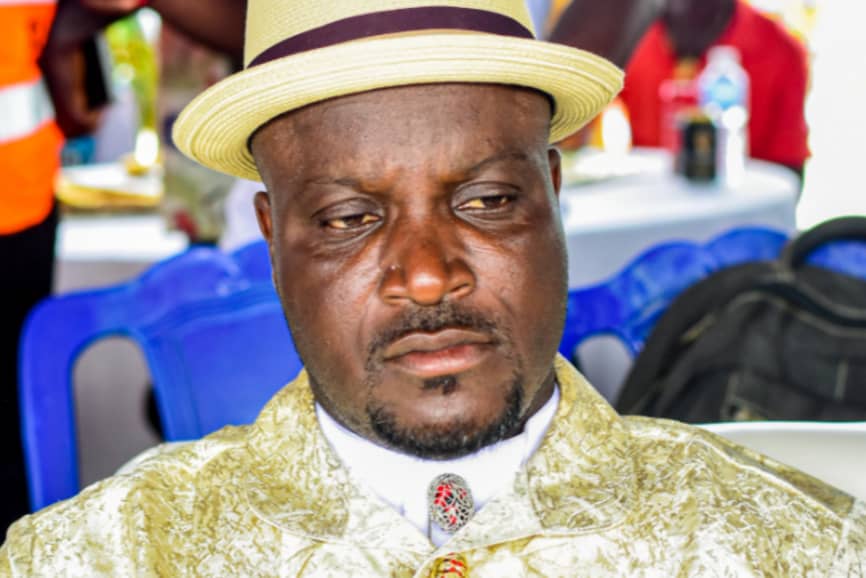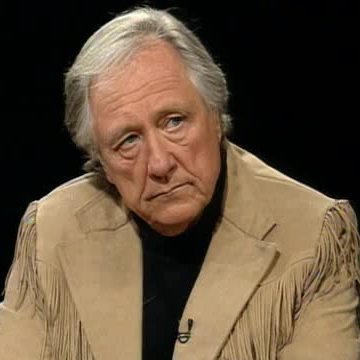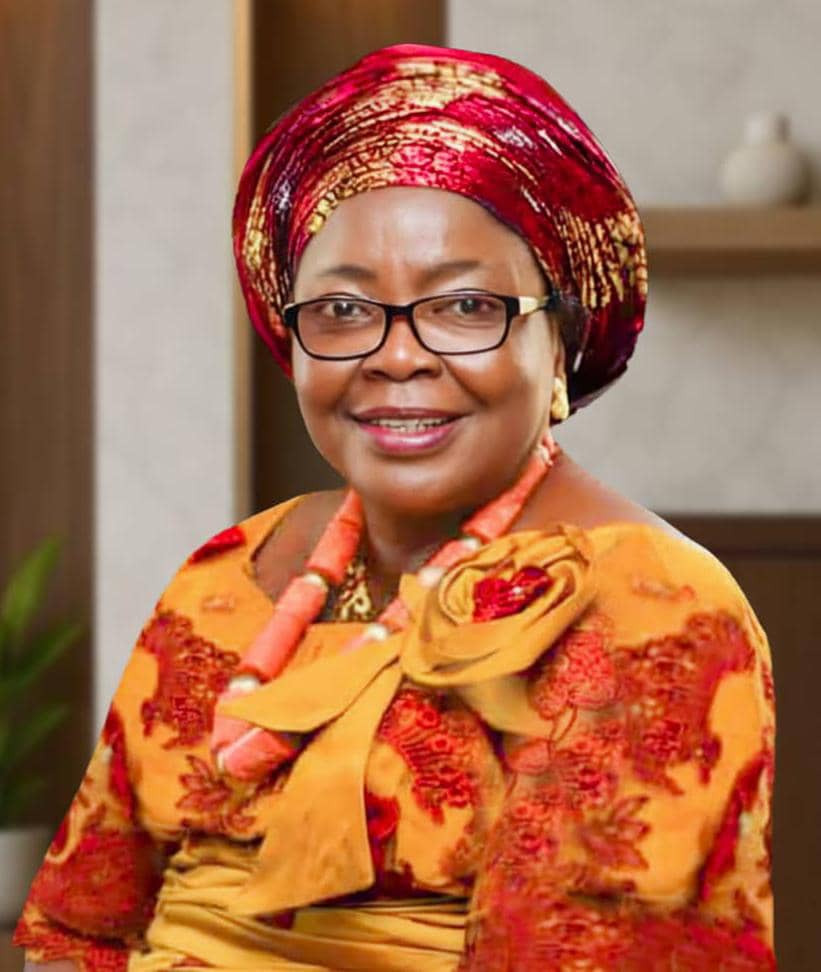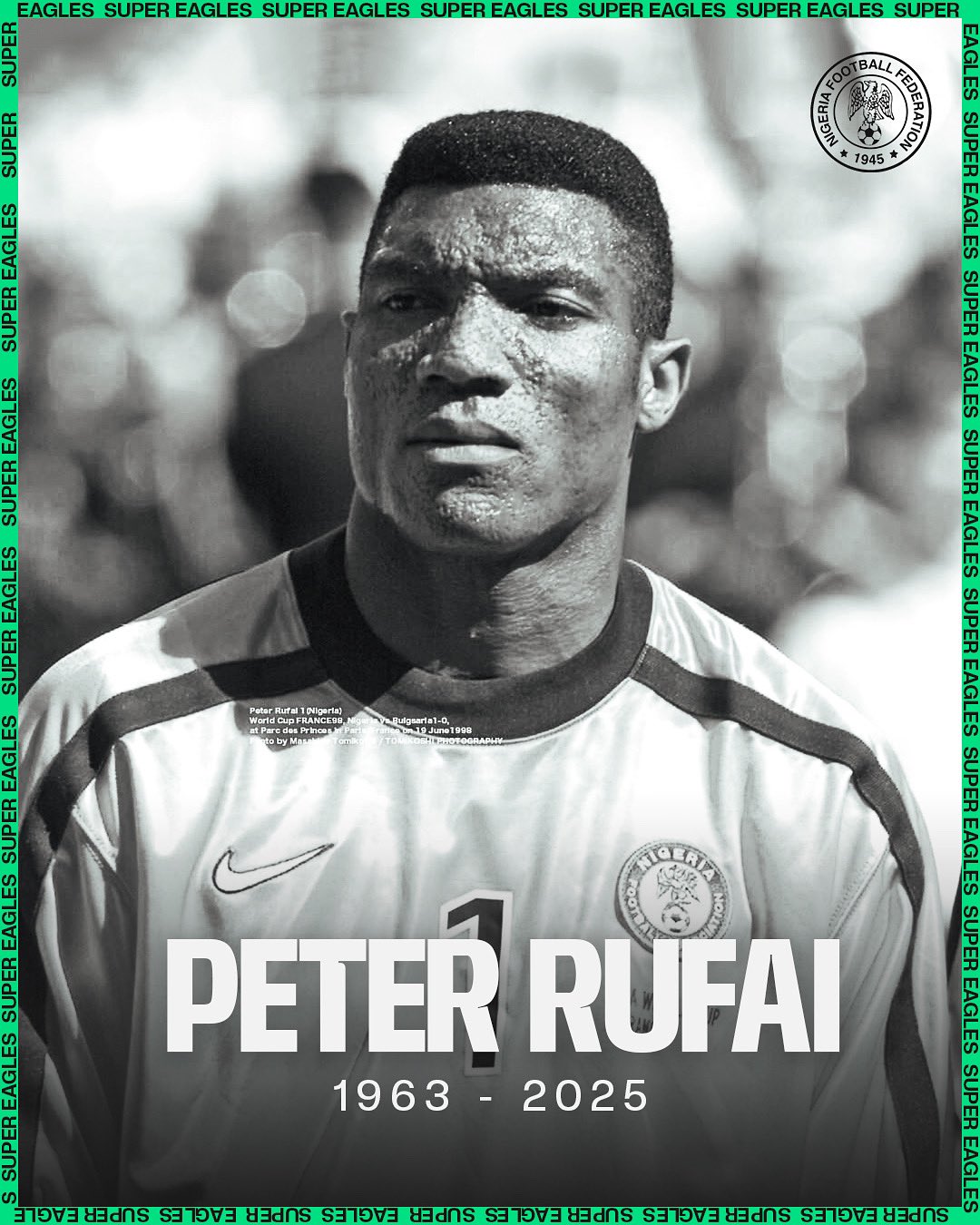CHIEF (DR.) HUBERT ADEDEJI OGUNDE, The Doyen of African Theatre
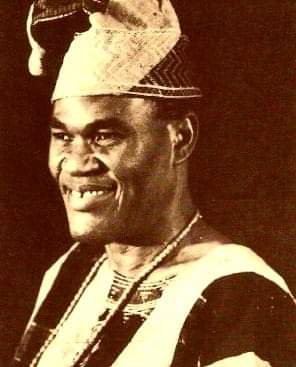
Did you know that Chief Ogunde, "the father of Nigerian theatre, or the father of contemporary Yoruba theatre" had his play, Yoruba Ronu (which generated controversy and earned him the wrath of Chief Akintola, premier of the Western Region) banned for two years in 1964?
Chief (Dr.) Hubert Adedeji Ogunde was a Nigerian actor, playwright, theatre manager, and musician who founded the first contemporary professional theatrical company in Nigeria, the African Music Research Party, in 1945, which he later changed to Ogunde Theater Party in 1947; Ogunde Concert Party in 1950, and finally, to Ogunde Theater in 1960, a name that remained until his death in 1990.
Ogunde was born in Ososa, near Ijebu-Ode, Ogun State, Nigeria, on 10 July 1916 to the family of Jeremiah Deinbo and Eunice Owotusan Ogunde. His father was a Baptist pastor and his maternal grandfather was a priest of Ifa, an African traditional religion.
Ogunde briefly lived within the precincts of his grandfather's compound and was exposed to Ifá, Ogun and many other traditional religious celebrations. Both the Christian and traditional religion of the Yoruba influenced his upbringing. He had his education between 1925 and 1932, attending St John School, Ososa, (1925–28), St Peter's School, Faaji, Lagos, (1928–30) and Wasimi African School, (1931–32).
His first contact with performance art was as a member of Egun Alarinjo during his elementary school days. After completing his education, he worked as a pupil-teacher at St. John's School, and was also church choirmaster and organist. He later joined the Nigerian Police Force in March 1941 in Ibadan. In 1943, the police force posted him to the Denton Police Station, Ebute Metta, where he joined an African initiated church, the Church of the Lord (Aladura). In Lagos, he created an amateur drama group, the African Music Research Party, in 1945.
Like many of his theatre contemporaries, such as A. B. David, P. A. Dawodu, Layeni and G. T. Onimole, his theatre career began under the patronage of the Church. In 1944, he co-produced his first folk opera with G. B. Kuyinu, The Garden of Eden and The Throne of God, commissioned by the Lagos-based Church of the Lord (Aladura) founded by Josiah Ositelu. The performance was sanctioned to aid contributions to a Church building fund.
The folk opera premiered at Glover Memorial Hall with the chairman of the ceremony, Dr. Nnamdi Azikiwe, in attendance. The play incorporated realism and dramatic action in the acting, dancing and singing of the performers, separating it from the common Native Air Operas predominant in Yorubaland at the time. This was an innovation that contributed to making it a success.
At the request of the Alake of Abeokuta, Ogunde performed "The Garden of Eden" at the Ake Centenary Hall. Encouraged by the success of the play, he went on to write more operas. He wrote and co-directed three religious-themed plays: Africa and God (1944), a folk opera infused with Yoruba cultural themes than were non-existent in The Garden of Eden, Israel in Egypt (1945) and Nebuchadnezzar's Reign and Belshazzar's Feast (1945). In 1946, he resigned his post with the police to become a professional dramatist.
In his career on stage, he wrote more than 50 plays, most of which incorporate dramatic action, dance, and music, with a story reflecting the political and social realities of the period. In the 1940s, he released some plays with political commentaries: The Tiger's Empire, Strike and Hunger and Bread and Bullet. During the 1950s, he toured various Nigerian cities with his travelling troupe. In 1964, he released Yoruba Ronu, a play that generated controversy and earned him the wrath of Chief Akintola, premier of the Western Region. The Ogunde Theater was banned in the Western Region of Nigeria for two years as a result. This ban was only revoked by the new military government of Lt. Col. F. A. Fajuyi on the 4th of February, 1966.
In the late 1970s, Ogunde was spurred by the success of Ija Ominira and Ajani Ogun, two pioneering Yoruba feature-length films, to co-produce his first celluloid film, Aiye, in 1979. He released Jaiyesimi, Aropin N'tenia, and Ayanmo, feature-length films influenced by Yoruba mysticism, thereafter. Ogunde starred in Mister Johnson, the 1990 motion picture that also featured Pierce Brosnan. The movie was shot on location in Toro, near Bauchi, Nigeria.
As has already been stated, Ogunde's African Music Research Party, founded in 1945, was the first contemporary professional theatre company in Yorubaland. Previous performance groups were masked theatre troupes called Alarinjo who were dependent on the court or church for support, and who grew in popularity as a result of word of mouth. Ogunde distinguished his group by using promotion methods such as advertisements and posters, and by changing the round stage used by alarinjo performers to one with a proscenium. In addition, he introduced dramatic action and realism in his plays, depending on the audience for commercial support. By these acts Ogunde began the rise of modern professional theatre in Nigeria, a movement in which he remains the most influential practitioner.
In the 1960s, the advent of Western Nigeria Television (WNTV) gave Ogunde an avenue to reach his audience without traveling. He produced his plays Ayanmo and Mama Eko for the television audience. He was a representative of Nigeria to Expo 67 in Montreal. On his way back to Nigeria, he stopped at New York and performed at the Apollo Theater in Harlem.
In the late 1970s, Ogunde invited Ola Balogun to direct Aiye, an adaptation of one of his stage plays. Ogunde chose the play partly because it attracted crowds during its run of performances. Unlike the stage act, the film was shot in such a way as to allow for a sequel. The film premiered in 1979, and within a year it had made its money back. Aiye explored Yoruba mysticism, the issue of witchcraft and traditional notions of light and darkness. Ogunde sold some of his properties to finance the movie. The next Ogunde film was Jaiyesinmi, a sequel to Aiye co-directed by Ogunde and Freddie Goode. His third film was Aropin N'Tenia, another adaptation of a stage play which had premiered in 1964. The film had fewer mystical symbols than those that preceded it. Ogunde provided the funds for the production of all of his movies without exception. His fourth film was Ayanmo, originally adapted from a play that had been dedicated to his wife, Adeshewa, who had died previously.
Ogunde established a film village at Ososa, his hometown, to serve as a film shooting studio for his films in 1982. His last two films, Aropin N'tenia and Ayanmo were shot at the Ogunde film village.
Ogunde released many music albums during his career. His distinctive voice marked the songs in these albums which, like his plays and films, demonstrated knowledge of the Yoruba ethos. The albums included Ekun Oniwogbe (about the human conscience), Onimoto (about motor drivers) and Adeshewa (about the loss of his wife and co-star, who died in a tragic accident). The most popular of his albums is Yoruba Ronu, a soundtrack to the play of the same name. He produced over 90 songs in a creative life that stretched from the late 1950s to 1988. From the 1960s onwards, he produced a soundtrack album for each play.
In 1986, he was invited by the Nigerian government to form a national drama troupe. During this time, he represented Nigeria in the Commonwealth Festival of Arts, performing a play called Destiny (which was a re-arranged Ayanmo that he had released earlier in 1970). Destiny was a production with thirty dancers. In the play, Ogunde incorporated some of his favorite dance steps, Ijo-Eleja (or the dance of the fishermen), Asan Ubo-Ikpa from the Ibibio culture, and the kwag-hir from Tivland. He established an estate at Ososa. The venue served as the rehearsal center for the national troupe before his passing in 1990.
Ogunde married more than 10 wives and had many children. The Ogunde Theater was largely a family-run business, and all the wives and children took part in the productions at one time or the other. Some of the children were actors and actresses, while others were drummers, singers and ticket sellers. All of the wives shared the stage with their husband at various points in the history of the theatre.
Ogunde became the leading producer of Yoruba celluloid movies, with J'ayesinmi (Let the world rest) and Aiye (Life!), blazing the trail. He was ill during the shooting of the film "Mr. Johnson". Chief Ogunde died on the 4th of April, 1990, at London's Cromwell Hospital following a brief illness.
During his life he had been honoured with a chieftaincy title, thus making him an Oloye of the Yoruba people. His plays include: Garden of Eden and the Throne of God (1944), Africa and God (1944), Israel in Egypt (1945), Nebuchadnezzar's Reign and Belshazzar's Feast (1945), King Solomon (1945), Worse than Crime (1945), Journey to Heaven (1945), The Black Forest (Igbo Irunmale) (1945), Strike and Hunger (1945), Tiger's Empire (1946), Darkness and Light (1946), Mr. Devil's Money (Ayinde) (1946), Herbert Macaulay (1946), Human Parasites (1946), Towards Liberty (1947), Swing the Jazz (1947), Yours Forever (Morenike) (1948), Half and Half (1949), Gold Coast Melodies (1949), Bread and Bullet (1950),
Others are: My Darling Fatima (1951), Portmanteau Woman (1952), Beggar's Love (1952), Highway Eagle (1953), Princess Jaja (1953), Village Hospital (Ile Iwosan) (1957), Delicate Millionaire (Olowo Ojiji) (1958), Songs of Unity (1960), Yoruba Ronu (1964), Aropin N'tenia (1964), Otito Koro (1964), Awo Mimo (1965), Ire Olokun (1968), Keep Nigeria One (1968), Mama Eko (1968), Oba nta (1969), Ogun Pari (1969), Oh, Ogunde (1969), Ewe Nla (1970), Iwa gbemi (1970), Ayanmo (1970), Onimoto (1971), K'ehin Sokun (1971), Aiye (1972), Ekun Oniwogbe (1974), Ewo Gbeja (1975), Muritala Mohamed (1976), Oree Niwon (1976), Nigeria (1977), Igba t' ode (1977), and Orisa N'la (1977).
Ogunde films include: Aiye (1980), Jaiyesimi (1981), Aropin (1982), Ayanmo (1988), and Mister Johnson; while his appearance on Television include: Ogunde: Man of the Theatre - BBC (1983).
#penglobalbrandpersonality #HerbertOgunde
